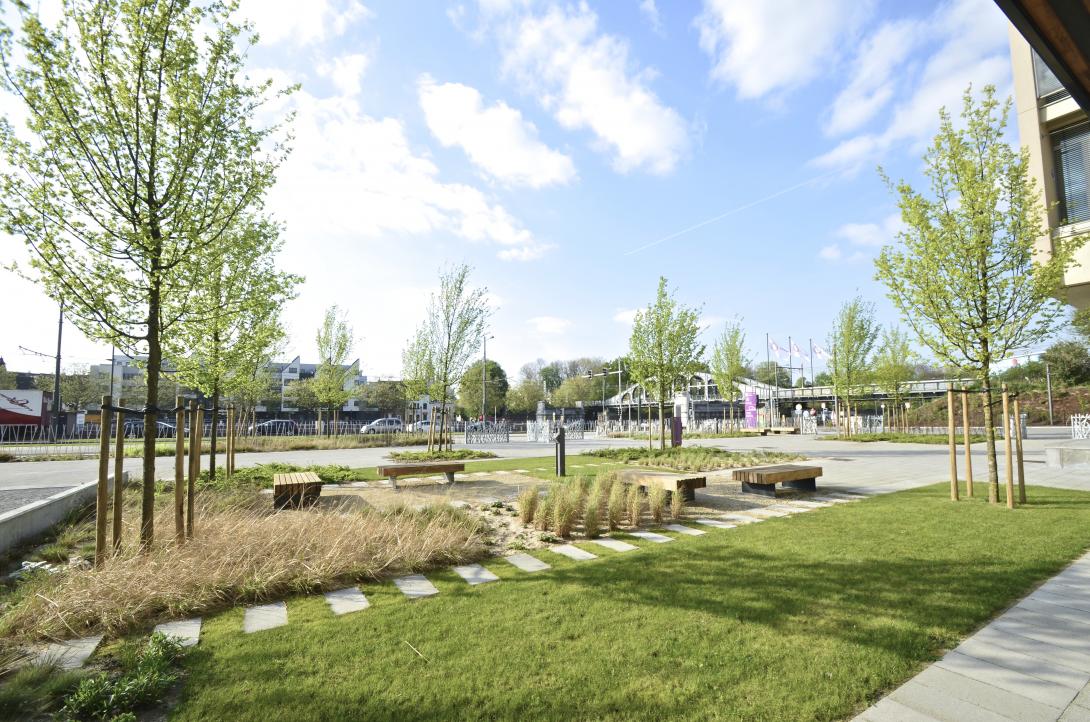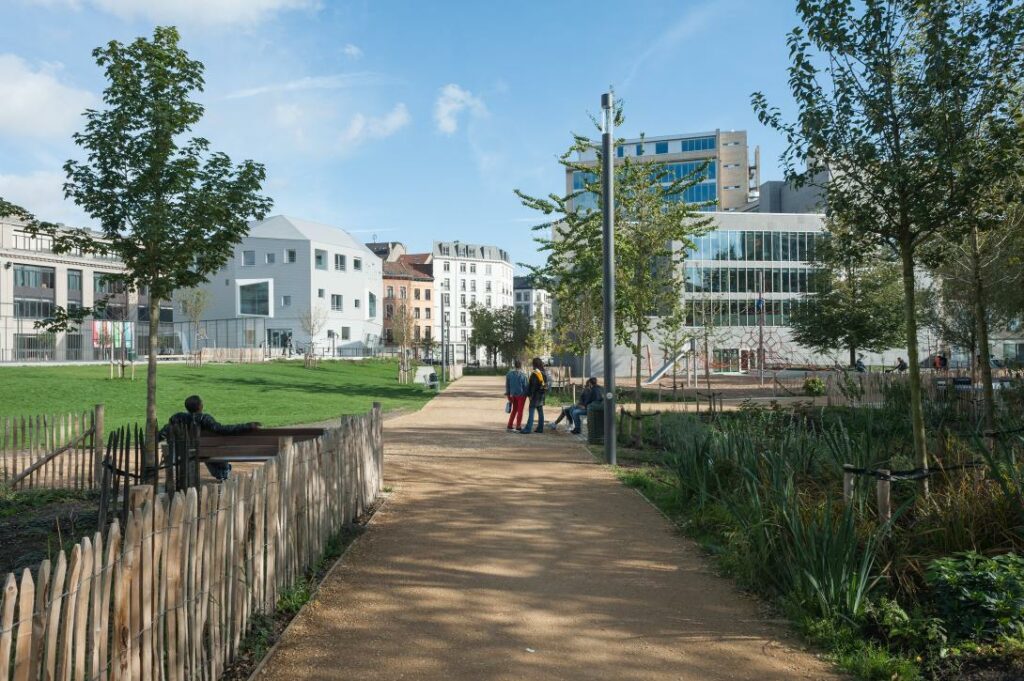As a concrete jungle, rainwater barely seeps into the soil of Brussels' ground, which has proven to be problematic during floods and long periods of drought. With its new Water Management Plan 2022-2027, Brussels authorities are aiming to "put water back at the centre" of the region, literally.
One of the region's municipalities, Forest, is a pioneer when it comes to sustainable water management. Among others, it is home to a whole street of rain gardens (named "water street") based on the principle of bioretention. This is designed to allow rainwater to infiltrate into the ground rather than run off the paved, sloping street.
Allowing rainwater to infiltrate the soil is the main principle developed by the Brussels Region for integrated rainwater management. Concretely, this would result in the rain no longer ending up in the sewers, but in the ground. In doing so, it can be used as a resource instead of being discarded as a source of waste.
"By making the most of rainfall and restoring its natural cycle, we will preserve our water resources in the long term and make Brussels a city better adapted to climate change and greener and more pleasant to live in," Alain Maron, Brussels Minister for Climate Transition and Environment said.
Coping with effects of climate change
Aside from creating more rain gardens across the region, other green solutions will be implemented to make the soil more permeable and immune to the effects of climate change.
According to Brussels Environment estimates, one in three Brussels residents could be potentially affected by flooding. One way rain gardens help mitigate the risk of flooding is by reducing discharges into the sewage system.
Brussels currently has less greenery than the periphery of the city, resulting in the heat being trapped rather than dispersed, creating a so-called "urban heat island effect," which can make the warmth unbearable during summer heatwaves.

A public rain garden in Brussels. Credit: Sibelga
The green solutions in the new water plan will help cool temperatures by 3-4°C locally during heatwaves, and furthermore, it will help restore biodiversity by expanding the green network throughout the city. At the same time, they can also help preserve drinking water by feeding groundwater, which is vital during long periods of drought as groundwater levels tend to drop.
"This new strategy is already a reality in Forest and it works! There is no longer any fitting in public spaces or public buildings that is not accompanied by the creation of rain gardens. This is how our municipality can cope with the effects of climate change," Alain Mugabo, Forest Councillor for Climate and Water.
Regional efficiency
Finally, the creation of rain gardens is much cheaper than constructing so-called "storm drains." These concrete structures cost between €1,200 and 1,500/m³, compared to €50 to 150/m³ for a green structure.
Brussels Environment is already developing new green spaces according to this principle of integrated rainwater management, which is also in line with the government's approach to regional planning regulations named Good Living.
Related News
- 'Bringing back Brussels' grandeur': Ambitious redevelopment at Place de la Bourse
- 'Every leaf counts': How cities can pioneer climate innovations
This stipulates that, when a site is being redesigned or created, 30% of the space has to be made into open space, of which three-quarters has to be "open ground," making it permeable to water.
Additionally, a 'Water' facilitator has been set up within Brussels Environment to support and assist private and public actors to realise their projects. Brussels residents wanting to install their own rainwater tank or make their soil permeable to water can receive grants under the Renolution scheme.

